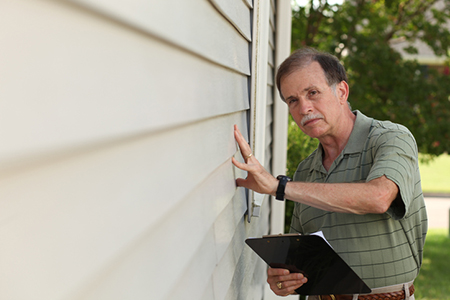 Today’s Ask the Expert column features Dan Steward, president of Pillar To Post Home Inspectors.
Today’s Ask the Expert column features Dan Steward, president of Pillar To Post Home Inspectors.
Q: Should sellers get a home inspection to help the mortgage process along?
A: If you’re a seller, it behooves you to get your own home inspection prior to putting your house on the market. But why spend money on one when the buyer will surely get their own?
Buyers that see a recent home inspection along with the listing sheet already realize that the asking price of the home is likely justified. They can rest assured that there are no scary surprises waiting for them upon closing. And you can hasten an offer by having that report right in front of serious buyers when they’re considering putting in an offer.
This also establishes a sense of trust between the buyer and the seller from the start. It shows the buyer that you care enough to get details and minor problems with the house detected and fixed before they even put in an offer.
If your home inspector shows you minor items that may come up in the buyer’s home inspection, you can have the issues looked at and repaired before the buyer even has their report done. You will have time for bids on a job instead of rushing to pay a higher price for the work, or, worse, having to deduct from the agreed upon price. In fact, you can show the report and a receipt proving the problem was already addressed by a licensed professional.
Having a good report readily available also shows the buyer that you’ve most likely been maintaining the property all along, which is another terrific plus when selling.
Mitigating risk is key when selling a home. Since laws regarding disclosures vary from state to state, for the most part, you as the seller are responsible even after a closing if something has been hidden or unreported to the buyer. Taking the time to have your own inspection will allow you to have repairs made for a cost that suits your budget, instead of having to deal with credits the buyer may ask for as the result of their home inspection. By getting a pre-inspection, you have proof that home maintenance issues, to the best of your knowledge, didn’t exist at the time of sale.
The only instance when it may not pay for a seller to proceed with a pre-inspection is when they’re selling a fixer-upper. In this case, the buyer already knows what to expect, and they should have a thorough home inspection completed before signing on the dotted line.
For more information, please visit www.pillartopost.com.
For the latest real estate news and trends, bookmark RISMedia.com.











